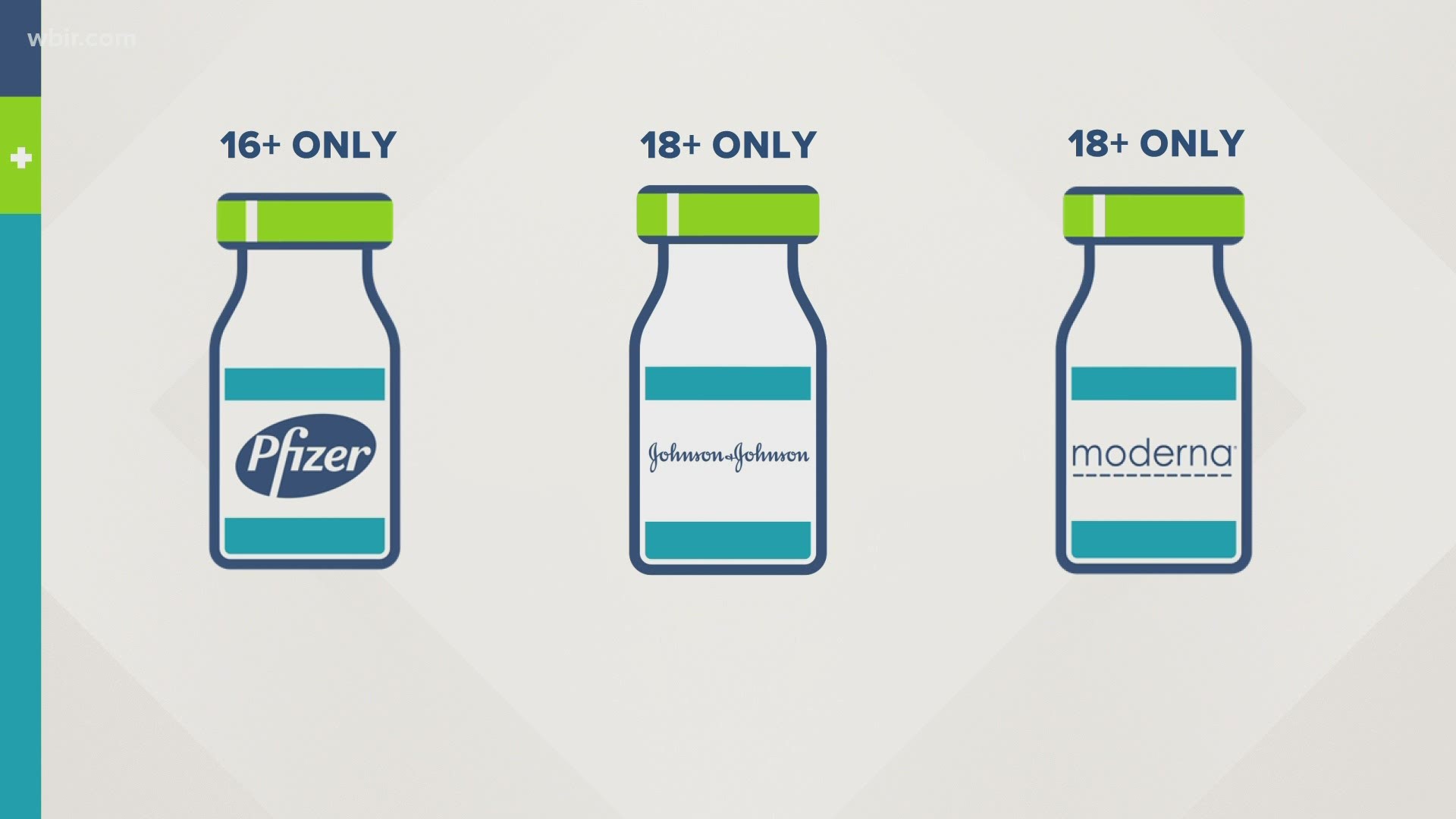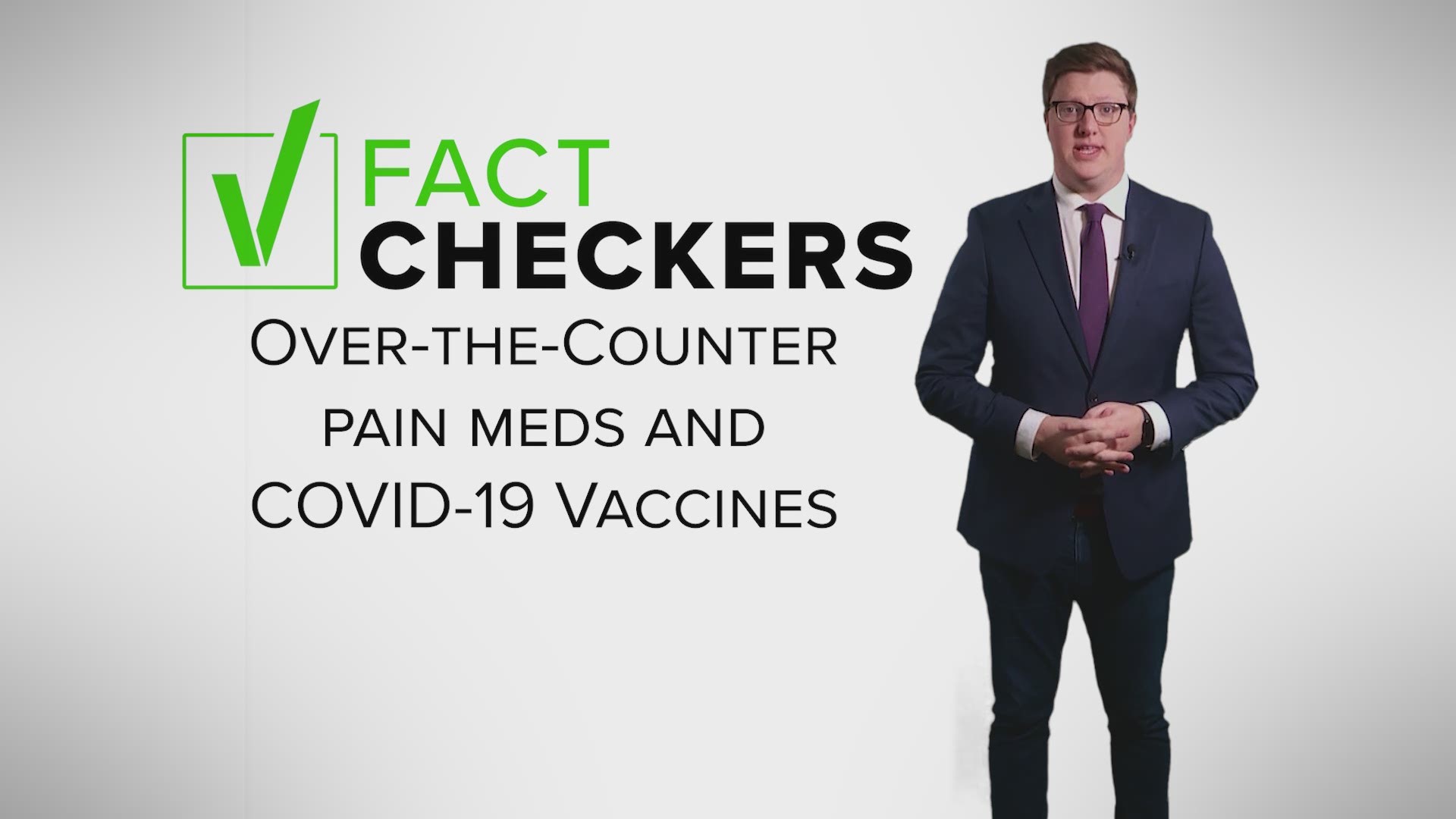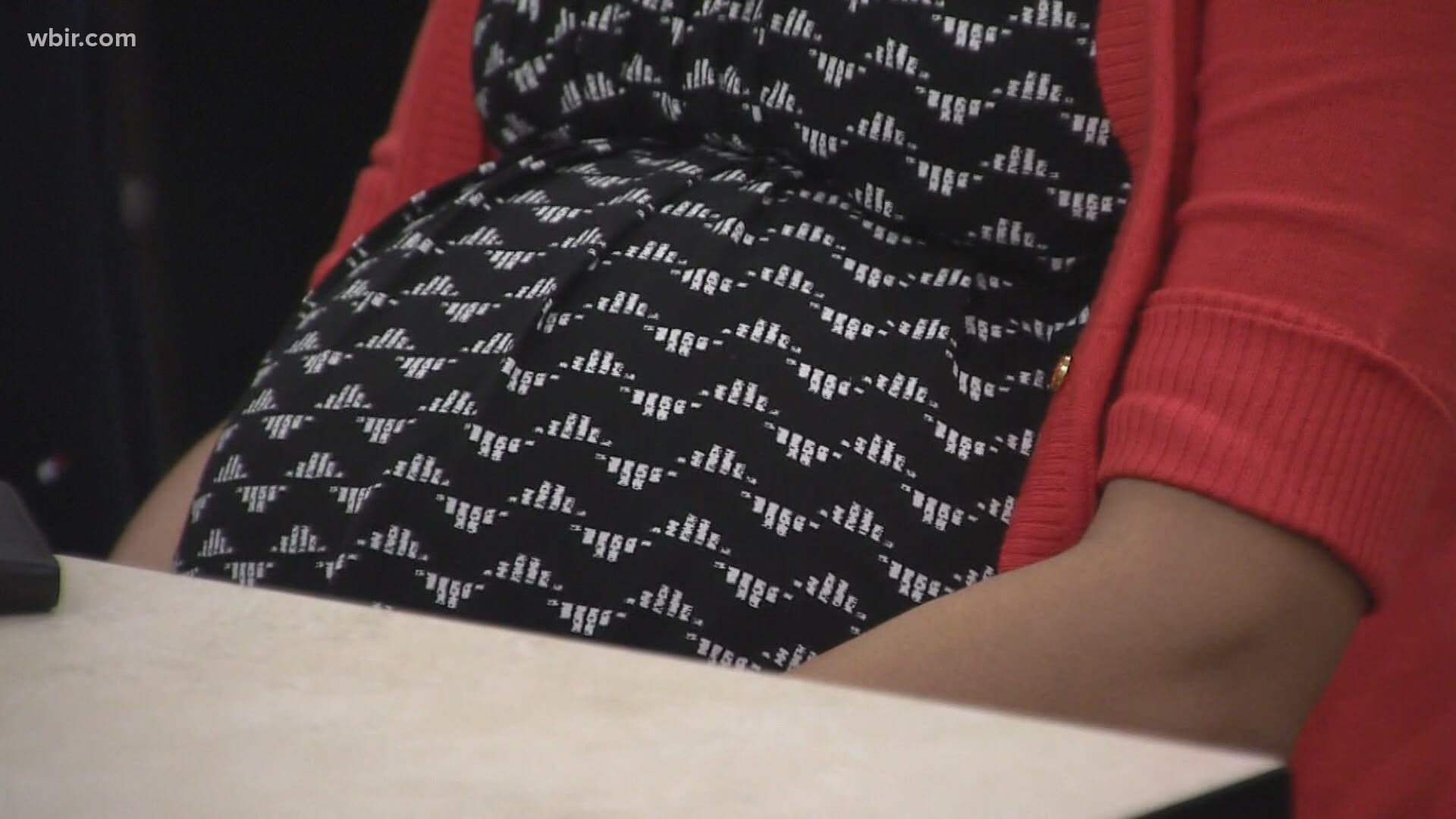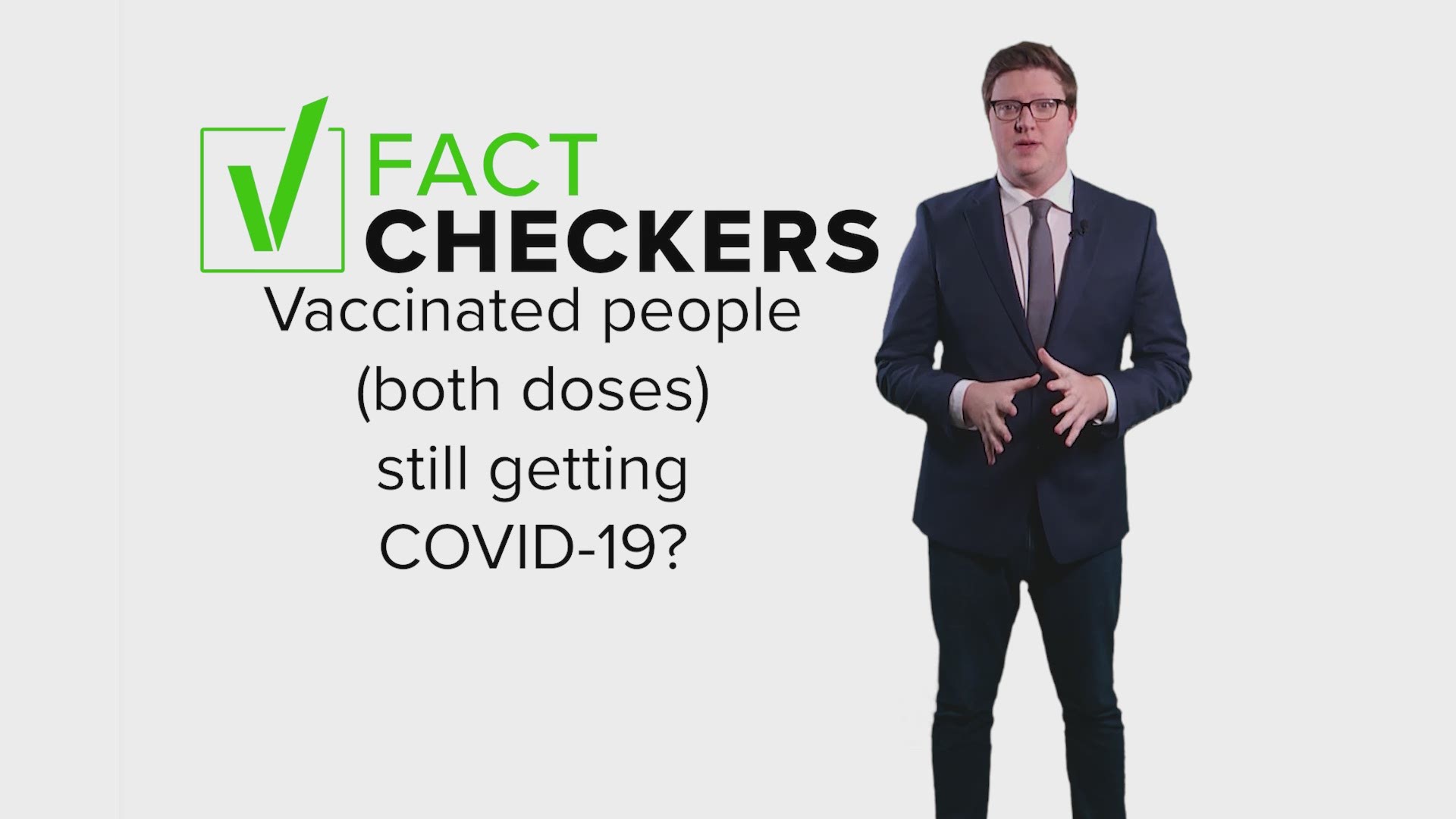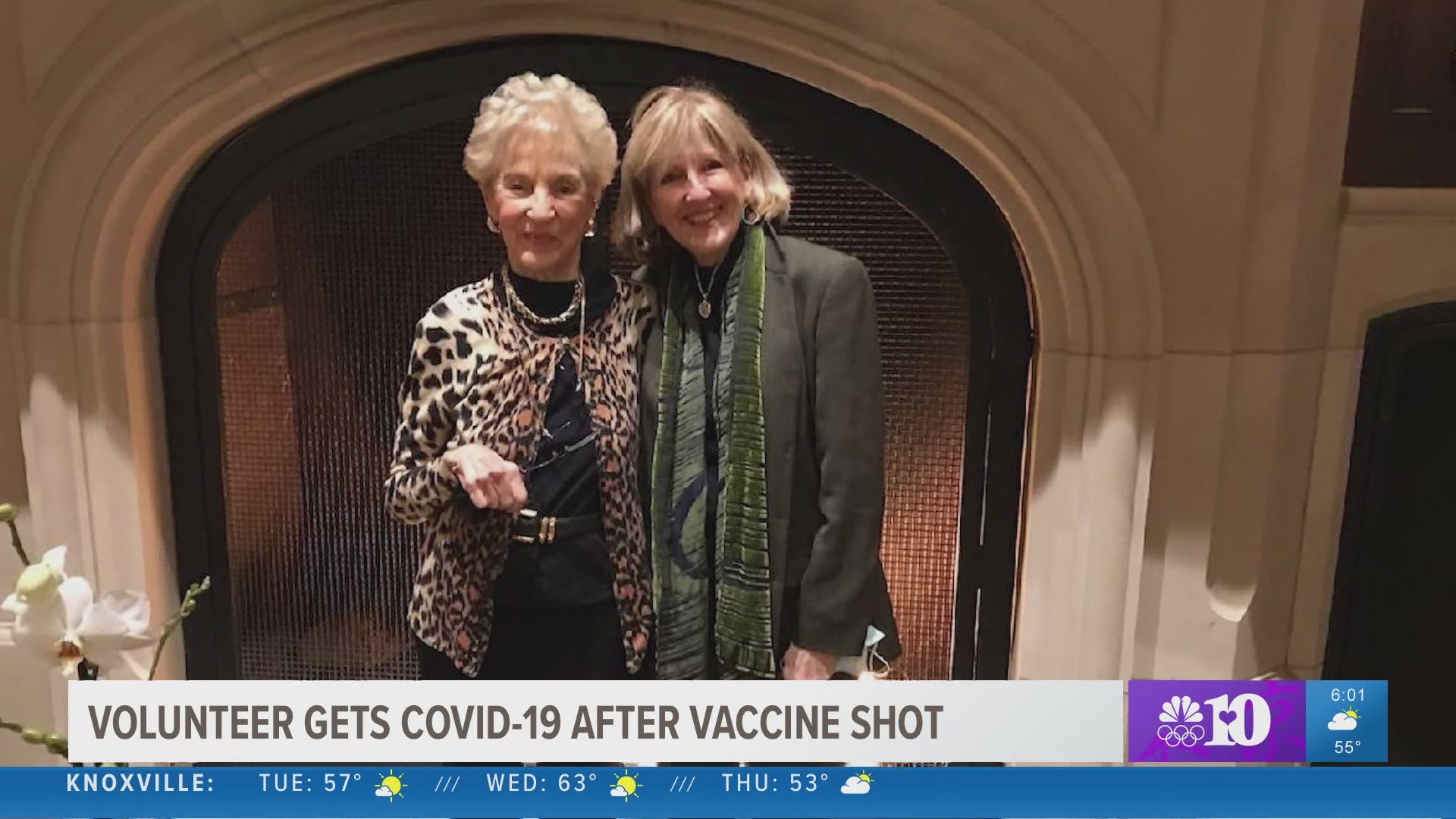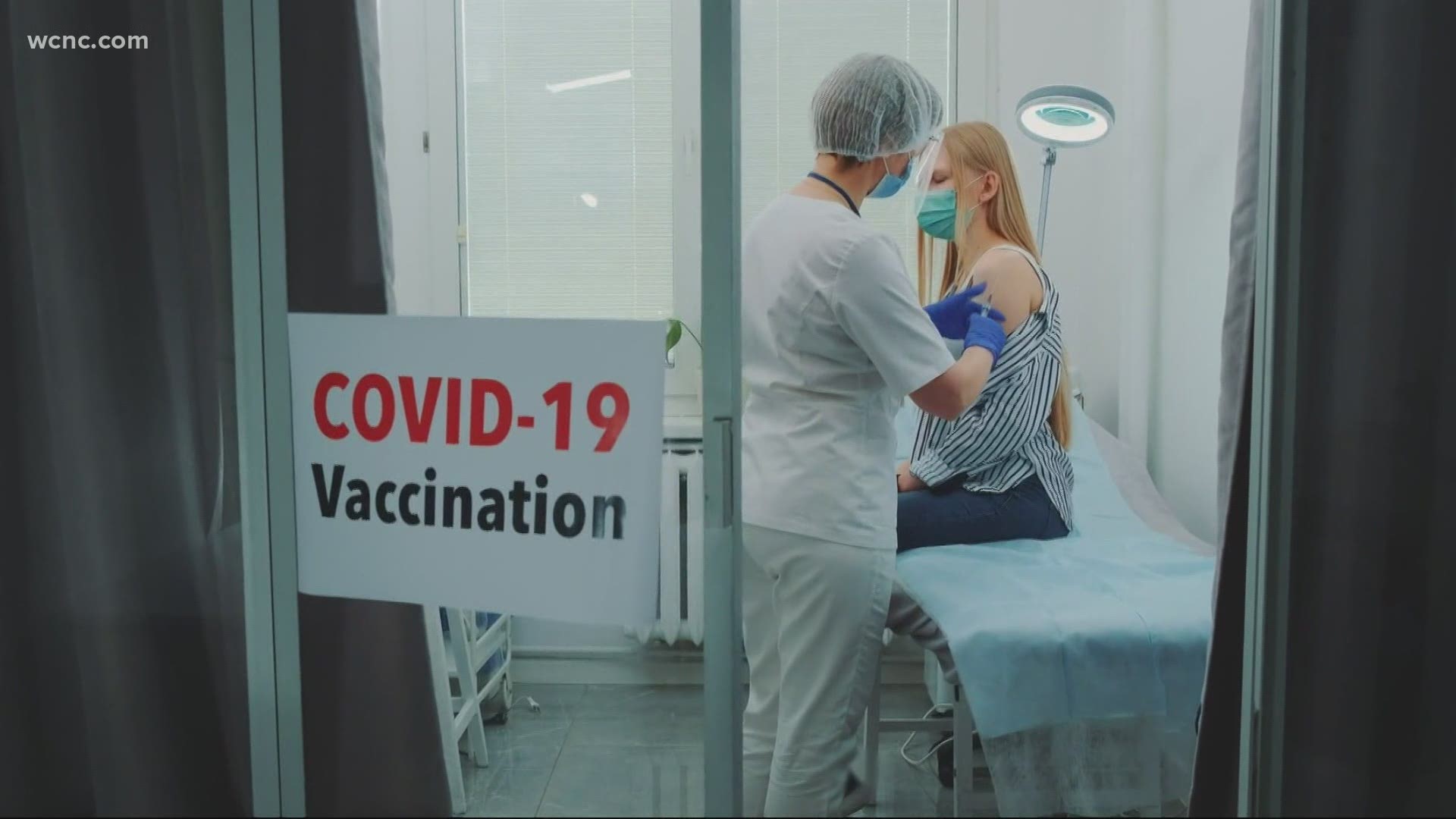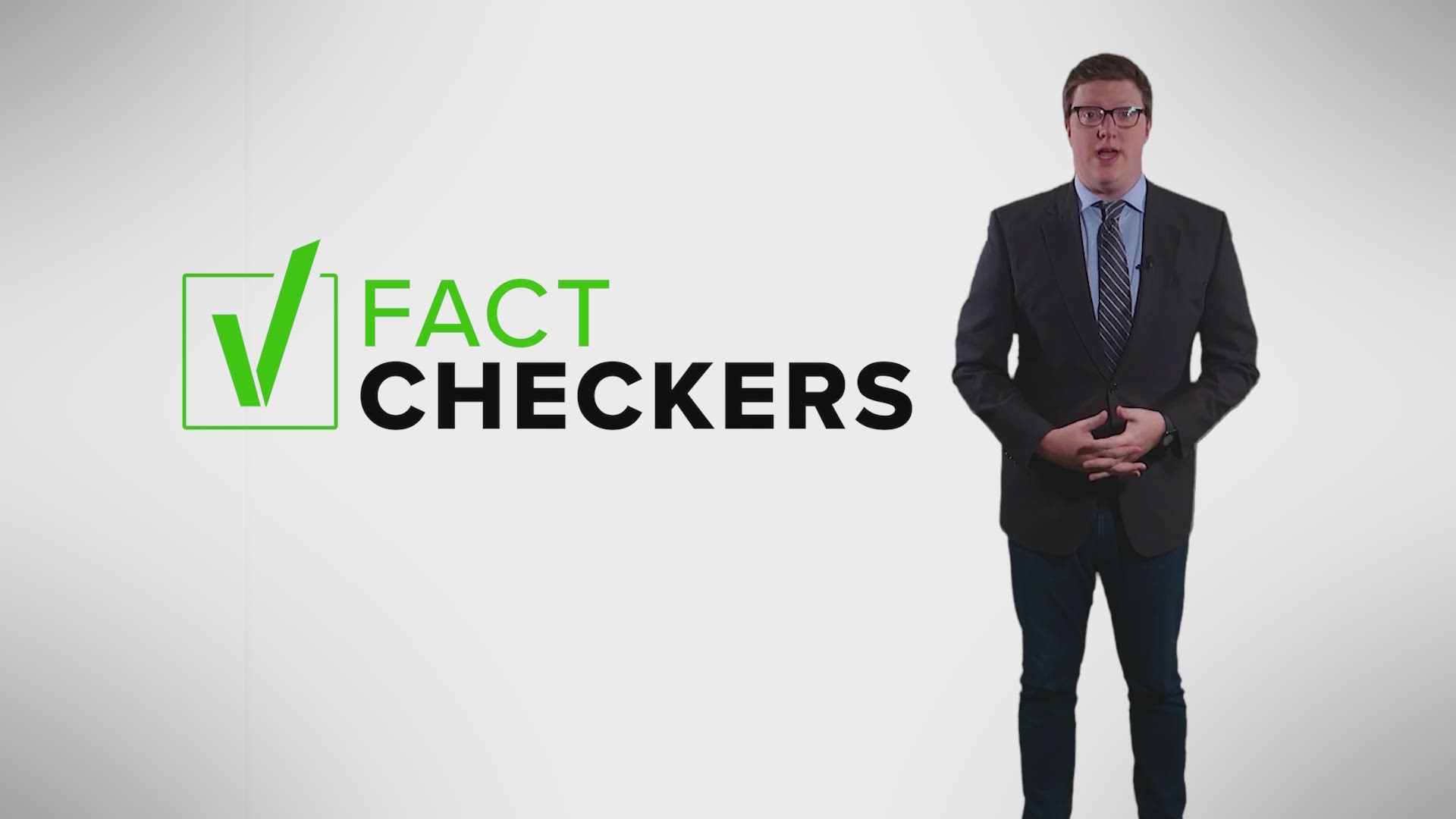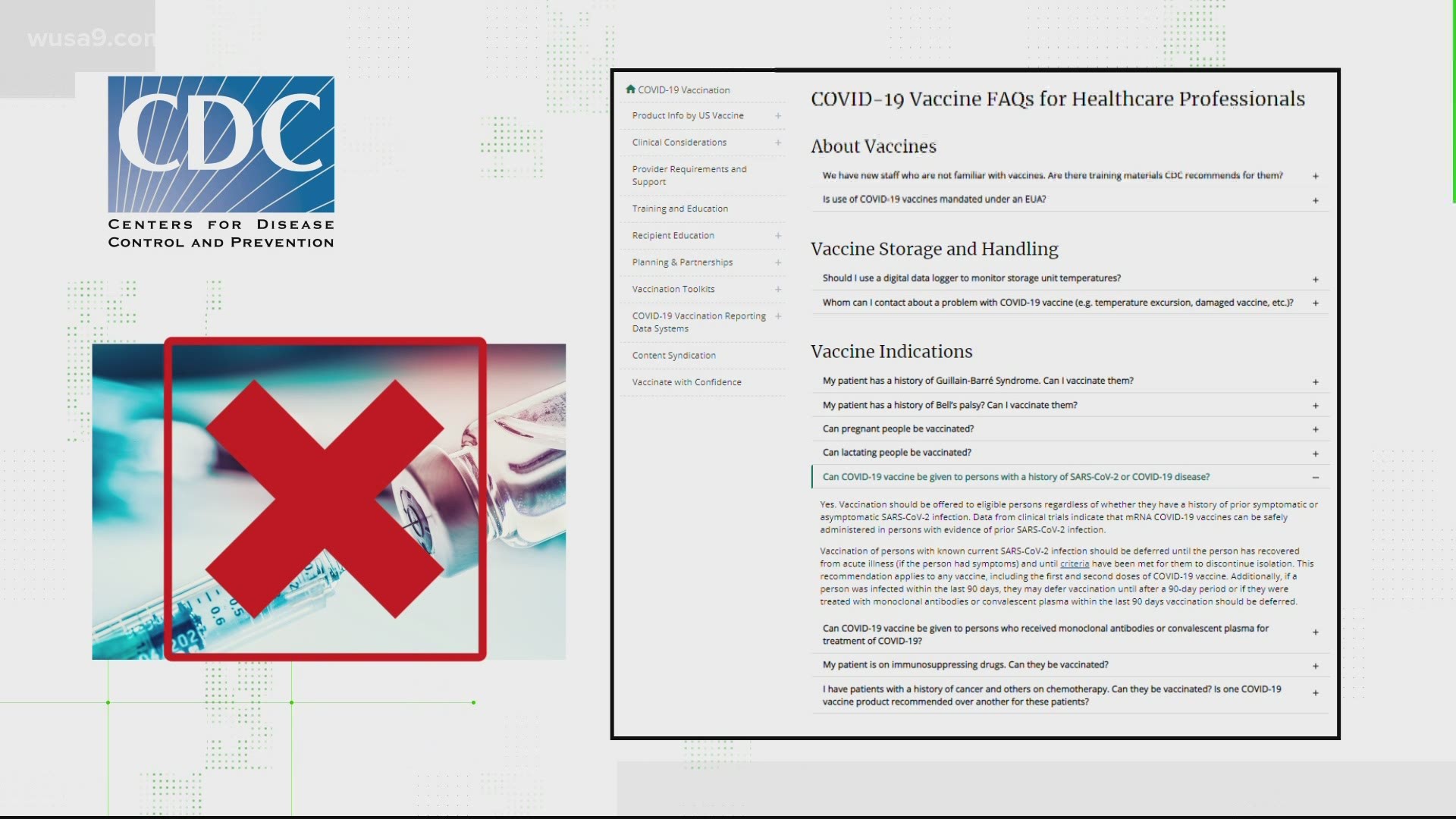TENNESSEE, USA — There's a lot of confusion surrounding COVID-19 vaccinations in Tennessee: how to get one, where you can go, who's eligible and plenty more questions.
If you are looking for places offering vaccine appointments, Tennessee and the CDC now have a vaccine finder that shows where appointments are available by zip code, and allows people to search for places offering a specific vaccine brand: vaccinefinder.org
People have sent 10News many questions beyond just signing up, and we want to help. Here are the answers we were able to find from reputable sources.
Who's eligible?
The vaccine is now open to all adults in East Tennessee, including Knox County. Teens age 16 and 17 are also eligible to receive the Pfizer vaccine specifically.
Where can I get the Johnson & Johnson/Pfizer/Moderna vaccine?
Vaccinefinder.org allows you to search for specific vaccines by zip code. Just click the check boxes next to the vaccine you are looking for to see a map of places in your area offering it.
Why can't my child get the vaccine?
Researchers are still testing how the vaccine affects children.
Adolescent trials are still underway for the vaccine. Trials for kids five to 11 should start later this year. The Pfizer vaccine is the only one currently authorized for teens 16 and up.
How many vaccines are there?
Right now, the FDA has authorized three vaccines in the U.S. Those are the vaccines produced by Pfizer, Moderna and Johnson & Johnson.
There are other vaccines approved in other countries and undergoing vaccine trials in the U.S. This includes vaccines by AstraZeneca. The Pfizer and Moderna vaccines are two-dose vaccines. However, others such as Johnson & Johnson's vaccine, are designed to be effective with a single dose.
VACCINE DIFFERENCES: Comparing the three major COVID-19 vaccines
Do you have to schedule the vaccination appointment in the county you live in?
No. The Tennessee Department of Health said you can get the vaccine in any county in the state. There is no guideline mandating that you get vaccinated in your county of residence.
APPOINTMENT TIPS: Tips to help you get a COVID-19 vaccine appointment
Can you get on a waiting list for the vaccine in Knox County?
The Knox Co. waitlist closed on April 3. People can register for an appointment directly in Knox Co. instead of having to put their name on a waitlist.
How do I take my name off a vaccine waiting list?
In Knox County, you need to call the public information line at 865-215-5555. The county asks that people call sooner instead of waiting to hear from them in order to reduce the amount of time they spend trying to contact people who no longer need appointments.
For other county health departments, you should contact 866-442-5301. If you signed up with a pharmacy or other private provider, you should check their vaccine portals for more information.
How much does the vaccine cost? Can you get it if you don't have insurance?
The vaccine is free for everyone. You do not need insurance to get it.
Is the vaccine effective against the new virus strains?
Researchers are still working to determine exactly how effective the vaccine will be on different variants of the virus.
So far, Pfizer and Moderna said the vaccine can protect people from the U.K. variant.
As for the South Africa variant, Pfizer said it found its vaccine was 100% effective against it. Moderna is developing a booster shot to fight it.
If I had COVID-19, do I have to wait to get the vaccine?
You do not need to wait to sign up for an appointment if you recovered from a non-serious COVID-19 infection. The CDC only recommends a 90-day wait for those who received treatment with donated convalescent plasma or antibodies to combat a serious infection in order to ensure the vaccine is effective.
Do the vaccines contain fetal tissue or fetal cells?
According to the CDC and the Tennessee Department of Health, the Pfizer and Moderna vaccines were not created with and do not require the use of fetal cell cultures for production.
Fetal cell lines were used in the development of the Johnson & Johnson vaccine.
CATHOLIC REACTION: Knoxville Diocese reassures Catholics that receiving Johnson & Johnson vaccine may be acceptable
Do the vaccines alter your DNA?
COVID-19 mRNA vaccines do not change or interact with your DNA, according to the CDC.
Is it OK to take Tylenol or Advil before getting the COVID-19 vaccine?
Doctors said you should not take over-the-counter pain medication before getting the vaccine, but you can take them to help with possible side effects after getting your shot.
What happens if you take Tylenol before getting the vaccine?
Multiple studies are looking into this, and the CDC recommends not pretreating with Tylenol or Advil as a precaution.
In the studies that have released data so far, the antibody response was still adequate, according to Dr. Bill Smith, who headed vaccine trials at Volunteer Research Group.
Can you get the vaccine if you are taking an antibiotic?
You should discuss this with your doctor first, but you should be able to receive the vaccine.
Doctors say antibiotics and steroids generally should not interact with vaccines, and the CDC's screening checklist says doctors need not withhold the vaccine for people on antibiotics.
Are there any medications that could prevent you from getting the vaccine?
There are no medications that will prevent you from getting the vaccine, but there are cautions around several, according to Dr. Smith.
Dr. Smith said the biggest issue is around the adequacy of immune response with people on immunosuppressive medication.
When will pregnant women be able to get vaccinated?
They became eligible on March 8 as Tennessee moved to Phase 1c.
The Tennessee Department of Health recently moved pregnant women to Phase 1c because they are at increased risk for hospitalization and death from COVID-19.
Is it safe for pregnant women to get the vaccine?
Vaccine trials did not include pregnant women. However, the American College of Obstetricians and Gynecologists says COVID-19 vaccinations should not be withheld from pregnant women, and that women should discuss individual risks and benefits with their health care providers.
PREGNANCY AND THE VACCINE: What should I know about COVID-19 vaccines if I'm pregnant?
How protected are you after the first shot?
It depends on the vaccine you get. The Pfizer vaccine is about 52% effective after the first dose. The Moderna vaccine is about 80% effective after the first dose.
When you get your first shot, is the second dose set aside for you then?
When you receive the first dose of the vaccine, you will receive a card with the date of your first dose and the manufacturer of the vaccine and the date that you should receive your second dose.
At the county health department, officials will instruct you on how to schedule an appointment for your second dose. Most of the counties are using online portals.
The health department will then contact you to tell you when you're due for your second dose. When the location is open and the availability, it has to give a second dose.
How long after you receive my second COVID-19 vaccine dose are you considered fully protected?
It takes up to two weeks after the second shot for your immune system to completely respond and provide protection, according to Johns Hopkins Medicine.
Once you are fully vaccinated, can you still be a carrier of COVID-19?
Doctors are still learning how the vaccines work in real-world conditions. There is not enough research yet to determine if the vaccine prevents you from spreading the virus.
The CDC recommends only people showing symptoms of COVID-19 quarantine while they are fully protected.
CDC GUIDELINES: CDC: Fully-vaccinated Americans can gather with other vaccinated people without masks or social distancing
Can you get COVID-19 after getting the vaccine?
After the second dose, the Pfizer vaccine is 95% effective at preventing COVID-19, and the Moderna vaccine is 94.5% effective, according to TDH.
You can still get the virus, but clinical trials showed it improves your odds of not feeling sick or having to be hospitalized.
Do you still have to wear a mask after getting the vaccine?
According to infectious disease doctors, you should continue to wear a mask after getting both doses of the vaccine.
Dr. Anthony Fauci has said he could see Americans still needing to wear masks in 2022.
Is the second shot the same as the first?
There is no difference between the two doses, in terms of chemical makeup. However, what they do and their functions are different.
Why do some people have more side effects after the second shot?
The first dose acts as a primer and produces an immune response. The second dose boosts your immune system's response to produce more antibodies and can cause those side effects.
After getting the second shot, some people run a temperature. Are they contagious during this time?
Despite running a fever, no one is contagious after getting the COVID-19 vaccine because it does not contain a live virus, according to the Tennessee Department of Health.
The CDC said running a fever and other side effects is a sign your body is building up protection from the virus.
SIDE EFFECT EXPERIENCES: After second shot, frontline workers detail mild, expected COVID-19 vaccine side effects
If you don't have a reaction to the vaccine, is it a sign that your immune system is not working as it should?
Not necessarily. Doctors said there was a significant percentage of participants in the Moderna and Pfizer vaccine trials who did not demonstrate the common side effects.
Can you have a reaction to the vaccine days after having the shot?
Yes, there are a few cases where some people can have delayed allergic reactions to medication or a vaccine within days to sometimes weeks after. These reactions are typically mild, though, as people with severe reactions usually show signs immediately.
If you have a preexisting condition, how do you prove it to the vaccine administrator?
People do not need to have a note from their healthcare provider to prove they are in the high-risk population, according to the Tennessee Department of Health.
Can I get the vaccine if I have an autoimmune disease?
People with autoimmune conditions can receive the vaccine, but there may be considerations you should discuss with your doctor.
Clinical trials did not test the safety of the COVID-19 vaccine for people with autoimmune conditions.
Can Knox Co. teachers get the COVID-19 vaccine?
Yes. Teachers are included in phase 1b of the Tennessee COVID-19 Vaccination Plan.
East Tennessee health departments and the Knox County Health Department expanded vaccinations to teachers on Feb. 22.
What is the time frame after you've had COVID-19 that you can get the vaccine?
You can defer getting the vaccine for 90 days from when you recovered from the virus, and you need to wait to get the vaccine if you were treated with plasma or monoclonal antibodies, according to the CDC.
If you received an antibody infusion after getting COVID-19, why do you have to wait 90 days before getting the vaccine?
You need to wait because your antibody treatment could interfere with the immune response from the vaccine, according to the CDC.
Should you get the second dose if you test positive for COVID-19 shortly after getting the first dose?
If you did not have a plasma or antibody treatment, you can get your shot as long as you are not still experiencing COVID-19 symptoms.
DELAYING DOSES: VERIFY: What happens if I get the 1st dose of the COVID-19 vaccine but delay the 2nd?
Can you get the vaccine if you have a head cold?
Doctors say it depends on the severity of your illness. This is something you should discuss with your physician.
Is it okay to get the vaccine if you are allergic to penicillin and sulfur drugs?
The CDC reports severe allergic reactions to the vaccine are exceedingly rare. In December, of 1.8 million people who received the vaccine, only 21 experienced severe allergic reactions. Seventeen of those 21 had a history of allergic reactions, the CDC said.
Getting a vaccine is something you should ultimately discuss with your doctor, according to Dr. Smith.
WHAT THE VACCINES ARE MADE OF: VERIFY: How COVID-19 vaccines are made and how they work
Are EpiPens on hand if a person has a major reaction to the vaccine?
Generally, yes. The CDC said vaccine locations should have at least three doses of epinephrine and/or EpiPens on-site to treat people who may experience severe allergic reactions. Nurses, doctors and pharmacists are trained to monitor for signs of reactions when administering any kind of vaccine
Is it safe for someone who had Bell's palsy to get the COVID-19 vaccine?
The CDC said people with a history of Bell's palsy can receive the vaccine unless they have a contraindication to vaccination.
Does the vaccine have a side effect of Bell's palsy?
According to the CDC, participants in both the Pfizer and Moderna vaccine trials reported cases of Bell’s palsy. The FDA has not concluded that these cases were related to vaccination.
Should you get the vaccine if you had Guillain-Barre?
The CDC said people with a history of Guillain-Barré Syndrome can get the vaccine unless they have had prior issues with vaccination.
How often do you have to get the vaccine? Is it annually like the flu shot?
Dr. Smith said researchers are still working to figure this out. They're still following vaccine trial participants. They also don't know if the new variants will require higher antibody levels.
His best guess is annually, but he isn't sure. It could be longer or shorter.
Have there been any deaths from the vaccine?
People have died after getting the vaccine, but those are considered isolated deaths. Officials have not determined their deaths as being caused by the COVID-19 vaccine.
Is the vaccine mandatory?
No. The vaccine is not mandatory anywhere in Tennessee.
What vaccine is Knox County using?
The Knox County Health Department is currently offering the Moderna vaccine. Other providers in Knox County, including UT Medical Center, have been offering the Pfizer and Johnson & Johnson vaccines.
Who are the partners helping the Knox County Health Department administer vaccines?
10News does not have a full list, but these partners include Summit Medical Group and UT's Student Health Center.
Is my county offering the Johnson & Johnson COVID-19 vaccine?
You can search for locations offering any of the three currently approved vaccines through Vaccinefinder.org.
As of March 4, the J&J vaccine had limited availability across the state due to production shortfalls. The company is working with a competitor and the federal government to increase production, though, which is expected to greatly increase supply of the J&J vaccine by the end of March.
Do you have to go to the same location for the second dose?
You are guaranteed a second shot wherever you got your first. You may be able to get a second shot from a different location, but there are no guarantees.
Places are not obligated to give you a second shot if you didn’t get the first from them because your second dose was shipped to wherever you got the first.
Can a Tennessean get a vaccine in a nearby state?
It depends on the state's residency requirements.
States including Alabama, North Carolina, South Carolina and Virginia do not require proof of residency in order to get a vaccination.
Kentucky requires proof of residency. Georgia is not vaccinating residents of other states, except under certain circumstances.
Does the vaccine have tracking or computer chips in it?
No. Dr. Smith said there are many false claims going around online saying the vaccines have some sort of chip, but they are all inaccurate.
"We don't have transmitters that are that good to where they could do it even if they wanted to, but absolutely not," Dr. Smith said.
What is the difference in the vaccines that they require such a low temperature for storage?
The mRNA vaccines need to be stored so cold to prevent any biological degradation of the vaccine, according to Dr. Smith. He said they are less stable than typical vaccines.
Have pharmaceutical companies stated what length of buffer the vaccines have past targeted expiration dates?
With the currently approved vaccines, that buffer is still effectively zero. The Pfizer and Moderna vaccine have incredibly strict storage and expiry measures since they do not use a live virus.
However, there are pushes happening on another front to try and prevent unnecessary wastage from 'leftover' half-doses in spent vials:

